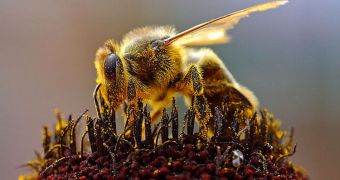A group of experts from the Arizona State University (ASU) and the Norwegian University of Life Sciences (NULS) have recently discovered that foraging bees that are made to take on social duties and nest responsibility display a rejuvenation of their brain.
This change is equivalent to a human brain aging backwards in time, the scientists explain. The findings apply to older honeybees that take on the responsibilities of younger insects. What this study suggests is that social interventions may be key to treating human dementia as well.
Many researchers around the world are currently researching mental disorders ranging from mild cognitive impairment to dementia and Alzheimer's disease, but most of the studies are focused around figuring out the root causes of the disease, or developing new drugs and therapies against it.
The ASU/NULS group believes that this study highlights a new avenue of research, one that does not necessarily rely on chemicals, but rather on how sufferers interact with others. Details of their new study appear in the latest issue of the scientific journal Experimental Gerontology.
“We knew from previous research that when bees stay in the nest and take care of larvae – the bee babies – they remain mentally competent for as long as we observe them,” says Gro Amdam, a NUSL expert and an associate professor at ASU. He was also the leader of the research team.
“However, after a period of nursing, bees fly out gathering food and begin aging very quickly. After just two weeks, foraging bees have worn wings, hairless bodies, and more importantly, lose brain function – basically measured as the ability to learn new things,” he goes on to say.
“We wanted to find out if there was plasticity in this aging pattern so we asked the question, ‘What would happen if we asked the foraging bees to take care of larval babies again?” he says. The result surprised all researchers.
They discovered changes affecting the molecular structure of the older bees' brains, consistent with rejuvenation. The insects' brain was basically reverting back to a state that was needed in order for them to fulfill their social function.
In the study, experts found that as many as 50 percent of the bees regained their ability to learn new things, after just 10 days of resuming social duties. Interestingly, the proteins that were found to underlie this change are related to inhibiting the development of dementia in the human brain.
“Maybe social interventions – changing how you deal with your surroundings – is something we can do today to help our brains stay younger. Since the proteins being researched in people are the same proteins bees have, these proteins may be able to spontaneously respond to specific social experiences,” Amdam says.

 14 DAY TRIAL //
14 DAY TRIAL //